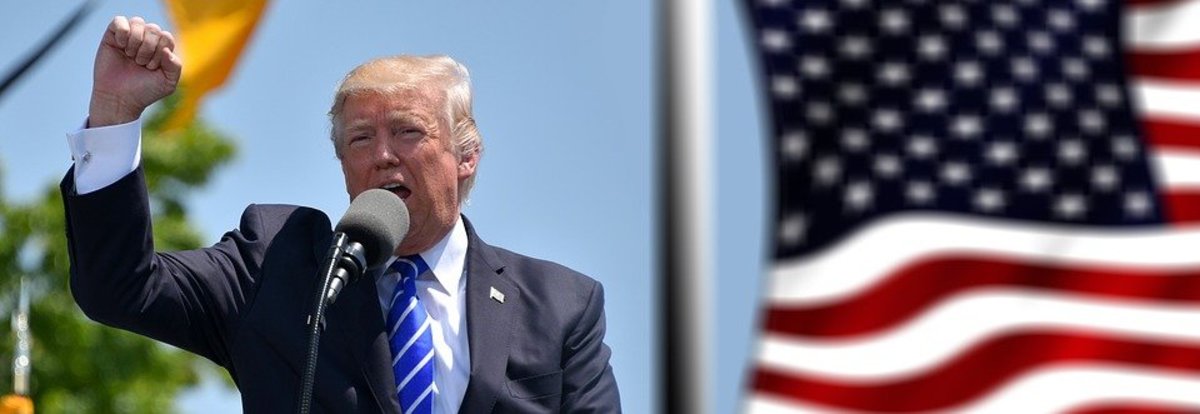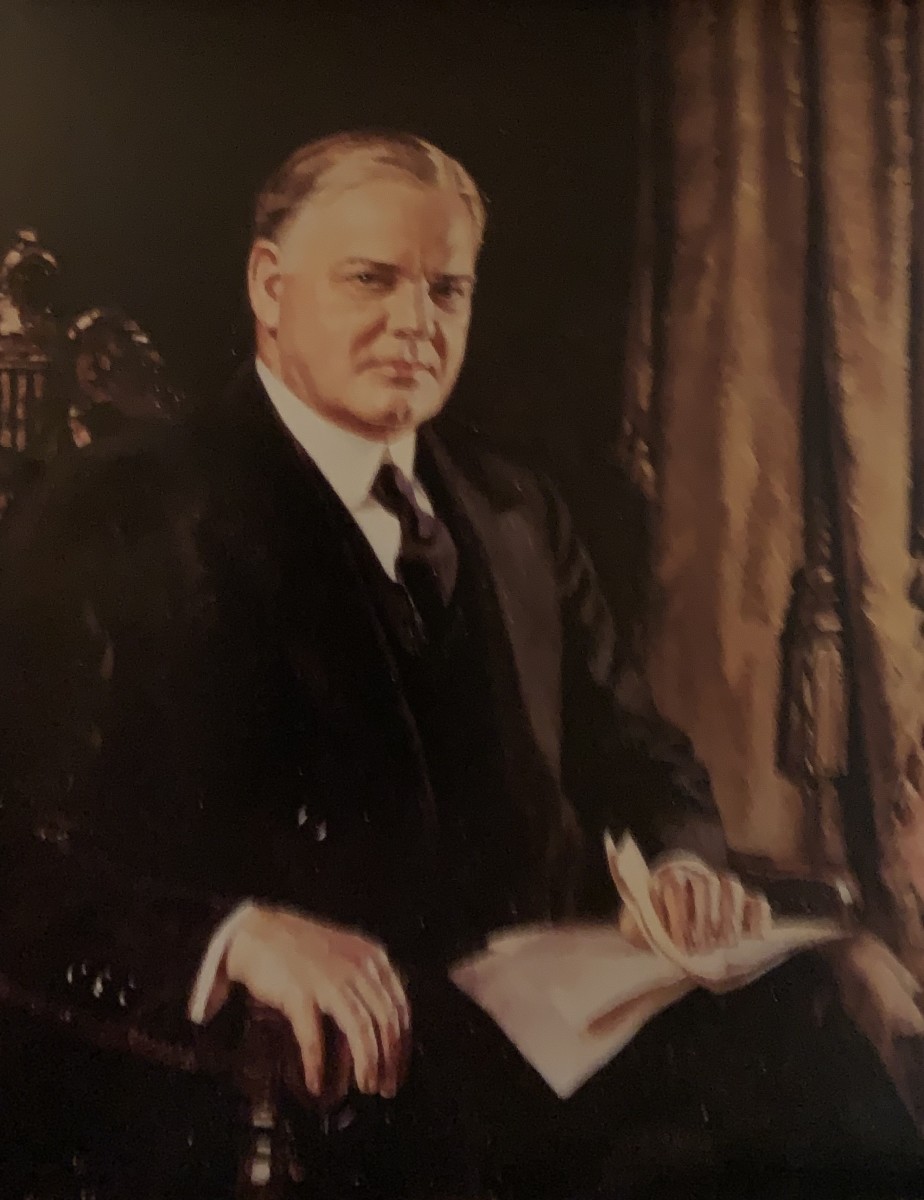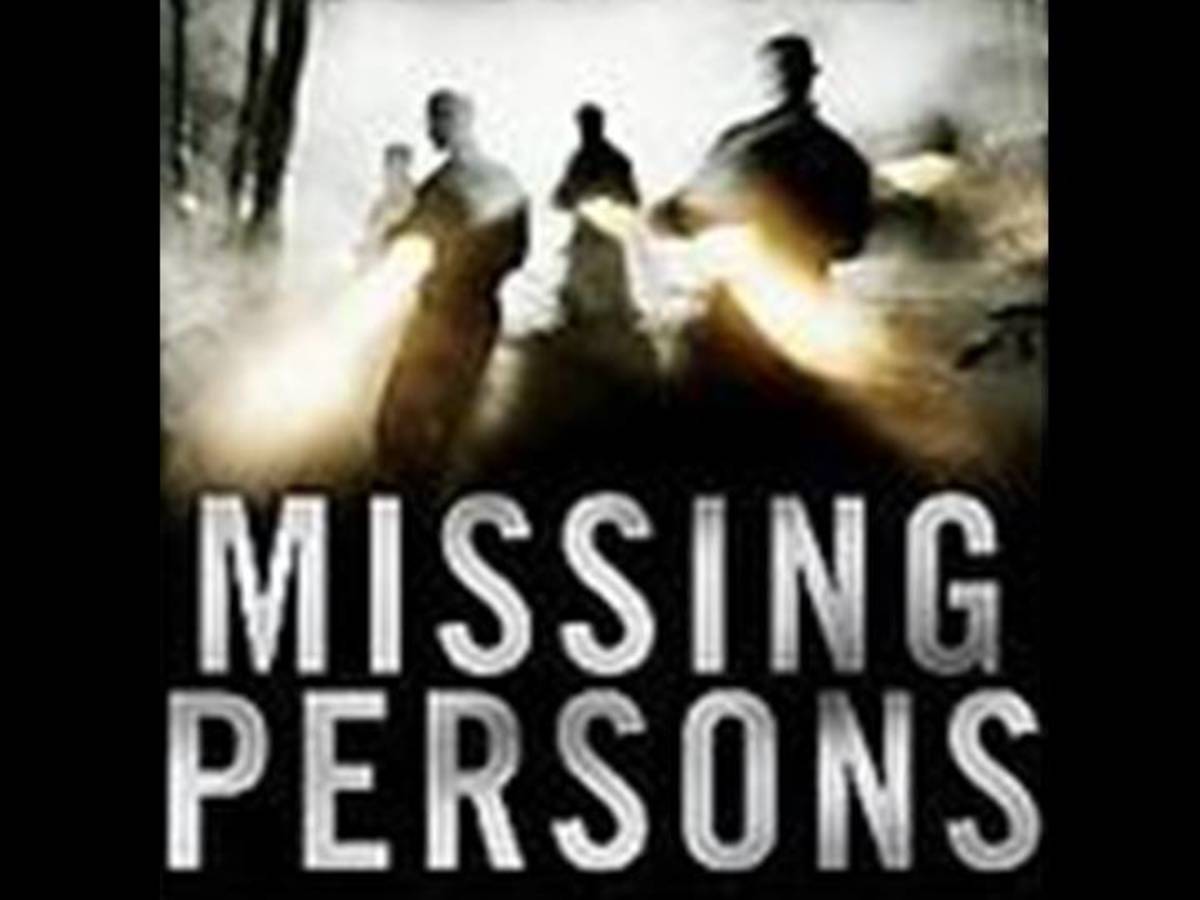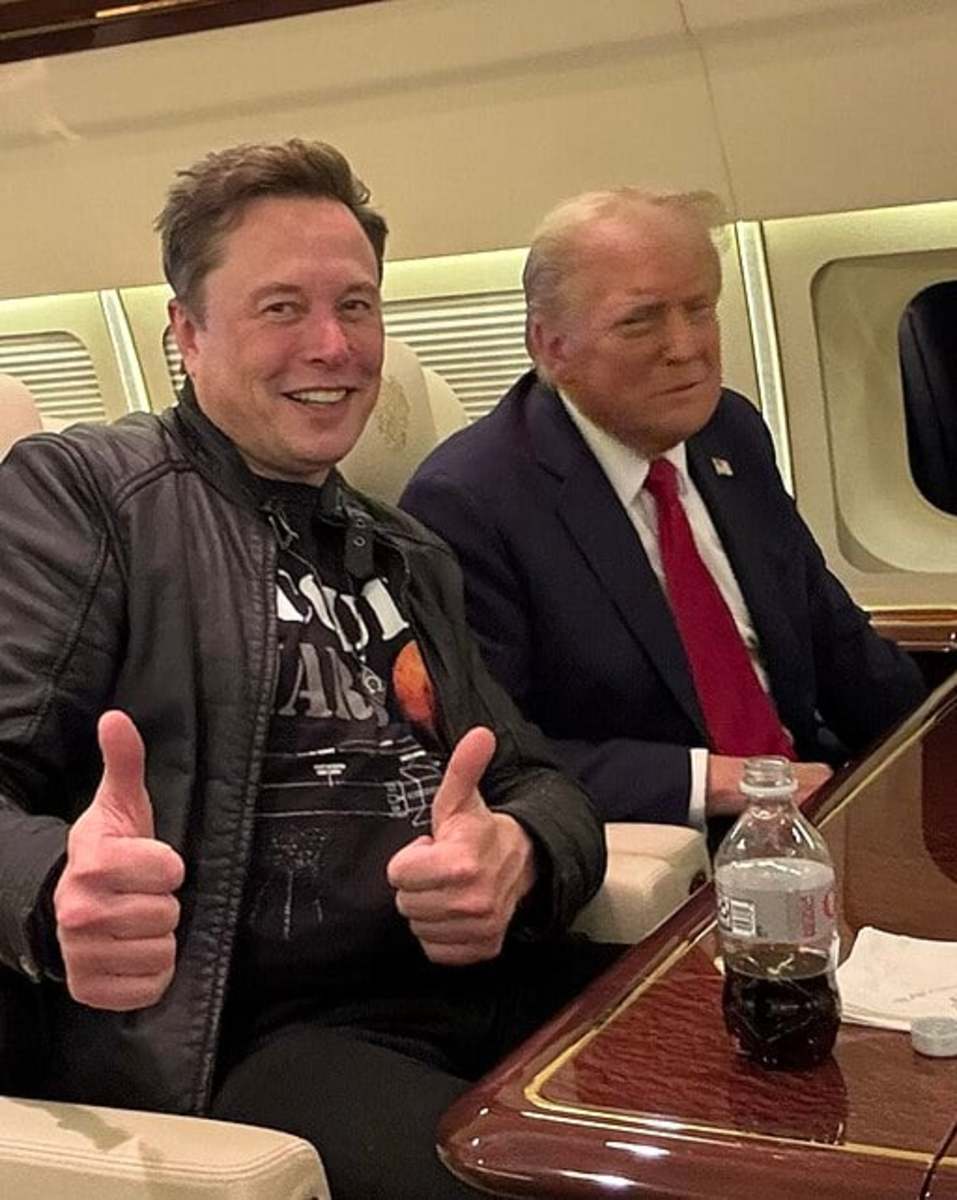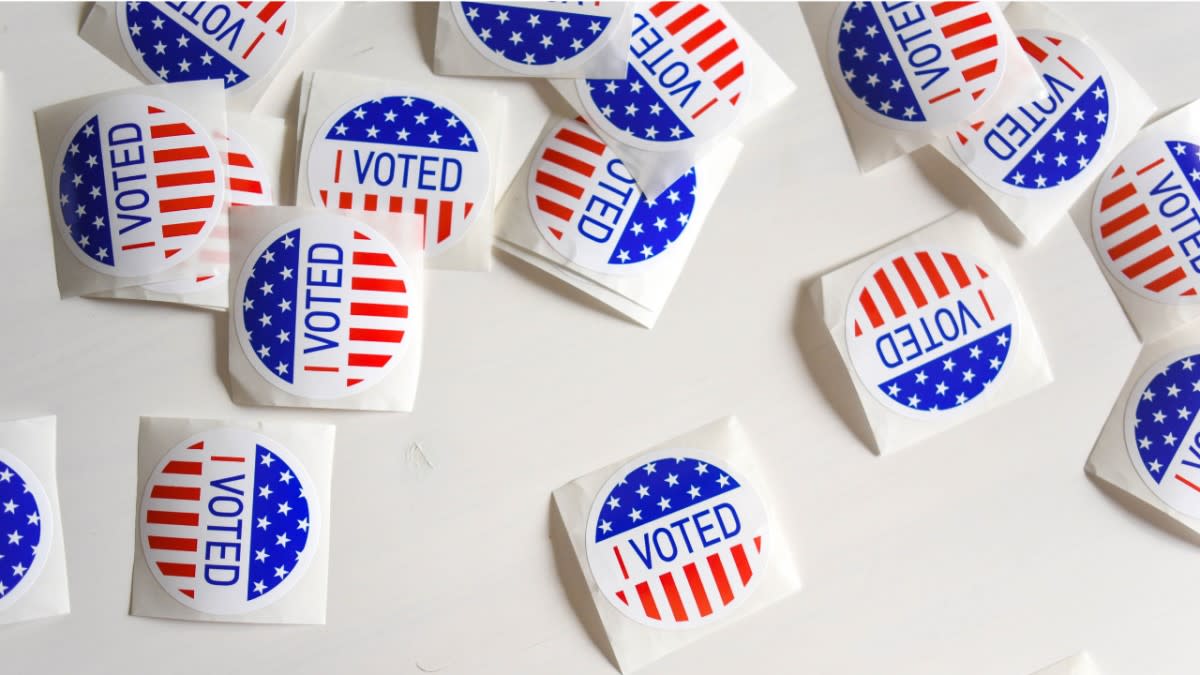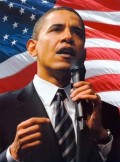Missing Person: The King of the United States
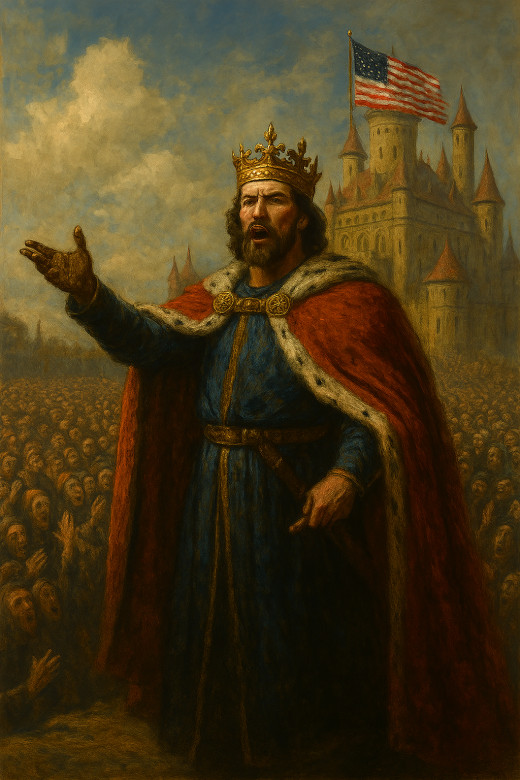
The government is shut down. Again. We've seen this movie before. It's not new, and it's certainly not exclusive to one party. Budget bills come packed with wish lists, demands, and political landmines. That's the game—and it's been played many times before with no sign of stopping anytime soon.
But let's set that aside for a moment. I want to ask a different question.
Where's the king?
Because if President Donald J. Trump is truly the king—as some seem to suggest, complete with protests against His Majesty—then why does he need permission for anything? Why wait for Democrats to cough up votes? Why is any of this even up for debate?
Isn't that what kings do? They declare. They decree. They command. The government could open because the king wills it so—on his terms. No debate. No discussion. No compromise. It never would have closed in the first place.
Because those who dare to defy the Crown? They're rounded up by horseman, or worse...
Beheaded.
That's the fantasy, isn't it? The current day myth of the all-powerful ruler. The sovereign whose word is law, whose whims shape every decision. A king doesn't answer to checks and balances. He doesn't wait for votes or vetoes. His word is the word of God, the People, the Kingdom. His power eclipses all others.

So, what were the "No Kings" protests really about? A king? Where? On what planet? In what country?
Because if Trump had truly declared the United States his kingdom, Congress would be disbanded. The Capitol's halls would echo with silence. The Supreme Court justices would have hung up their robes. Their decisions wouldn't matter anymore. Representation would not exist, and there'd be no reason to keep anyone else around to get things done. In a kingdom, only one man reigns supreme.
And yet, here we are. Still obeying laws. Still separating powers. Still following rules. Still not getting everything we want.
So where is this king?
Some might say President Trump is heading that way—consolidating power, removing dissenters, surrounding himself with loyalists. But presidents have always shaped their cabinets and reshaped them, appointed allies, and made strategic changes. That's not tyranny—it's governance. The real question is whether something new is happening, or whether some people are simply perceiving it differently.
Trump campaigned on disruption. Draining the swamp. Fixing the bureaucracy. Removing the wokeness. Restoring common sense and law and order. And the people elected him to do exactly that. He won the popular vote and the electoral vote on this go around. He won every swing state. He's doing what he said he would do—through legal channels, within his powers, and under the same process every other president has used.
And been forced to.
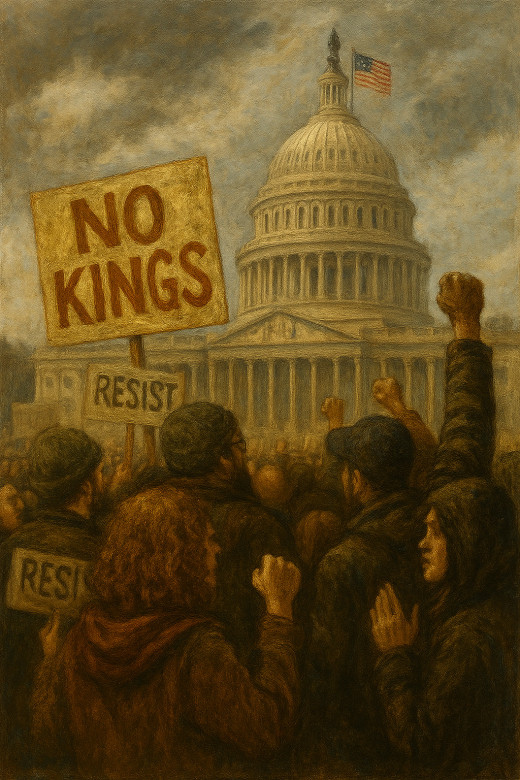
People may disagree with the agenda. They may push back on policy. But the reality remains—everything still moves through a well-defined process. No single person holds the gavel. Our system of government hasn't changed. The rules haven't shifted.
The president, like every president before him, must contend with resistance. His demands aren't guaranteed. His proposals don't become law by proclamation. And when he's told no—which happens often—it carries no penalty for the one who said it. No exile. No punishment. Just the usual political friction. Some disdain. A little ire. Maybe even a sharp word or two.
That doesn't sound like a kingdom run by a tyrant. It sounds exactly like democracy and representation.
Isn't there a touch of irony in the protests themselves? If we were truly living under a king, how could anyone take to the streets and shout him down without consequence?
In a real kingdom, dissent isn't a weekend activity. It's rebellion. And rebellion comes with a price—bloodshed, exile, civil war. History is littered with uprisings against monarchs, but they weren't followed by quiet nights and folded signs. They ended in the gallows being in full operation to deter defeat.
So, when people gather to protest the rise of a supposed king, it begs the question: If you can protest freely, loudly, and without fear of retribution...
Are you really living in a kingdom?

Granted, some protesters might insist it's all symbolic. "We're not saying he's literally a king," they argue. "We're saying he's erratic enough to come dangerously close, and that's the direction things seem to be heading."
What is President Trump even doing to remotely suggest this? Is it crazy to want safer streets in communities where leadership has failed? Is it crazy to say men shouldn't compete in women's sports? Is it crazy to oppose hormone treatments for grade school boys? Is it crazy to want American companies to invest in American manufacturing and offer better jobs—jobs that were eroded by deals that sent labor overseas, leaving us with Walmart and Burger King careers?
Is it crazy to want to know who's in our country and what they are doing? To make it harder for people to come here and take what they want without accountability?
Define the crazy parts. Because if we're supposed to be ruled by a king, something's not adding up. Because so far, none of this is crazy and none of what Trump is trying to do is happening easily. Either the crown is a myth, or the kingdom is broken. Either Trump is not the king or he is.
This shutdown provides a glimpse into that reality among so many other things that do as well. It's a rupture in the narrative. It doesn't look at all like something that would happen to a dictator, let alone a king. The myth of the strongman is colliding with the reality of democracy. The fantasy of unilateral power is meeting the grind of the constitutional process.
So, I ask, where is the King of the United States?
This content reflects the personal opinions of the author. It is accurate and true to the best of the author’s knowledge and should not be substituted for impartial fact or advice in legal, political, or personal matters.
© 2025 Jim Bauer


